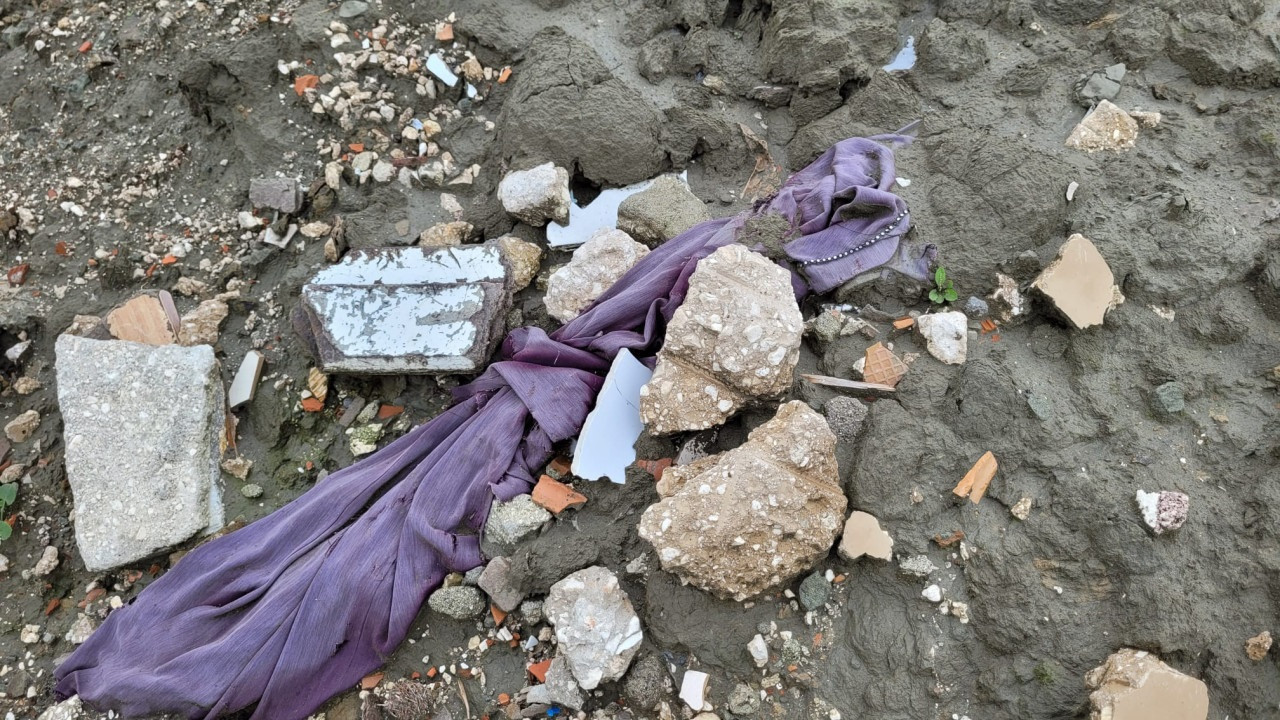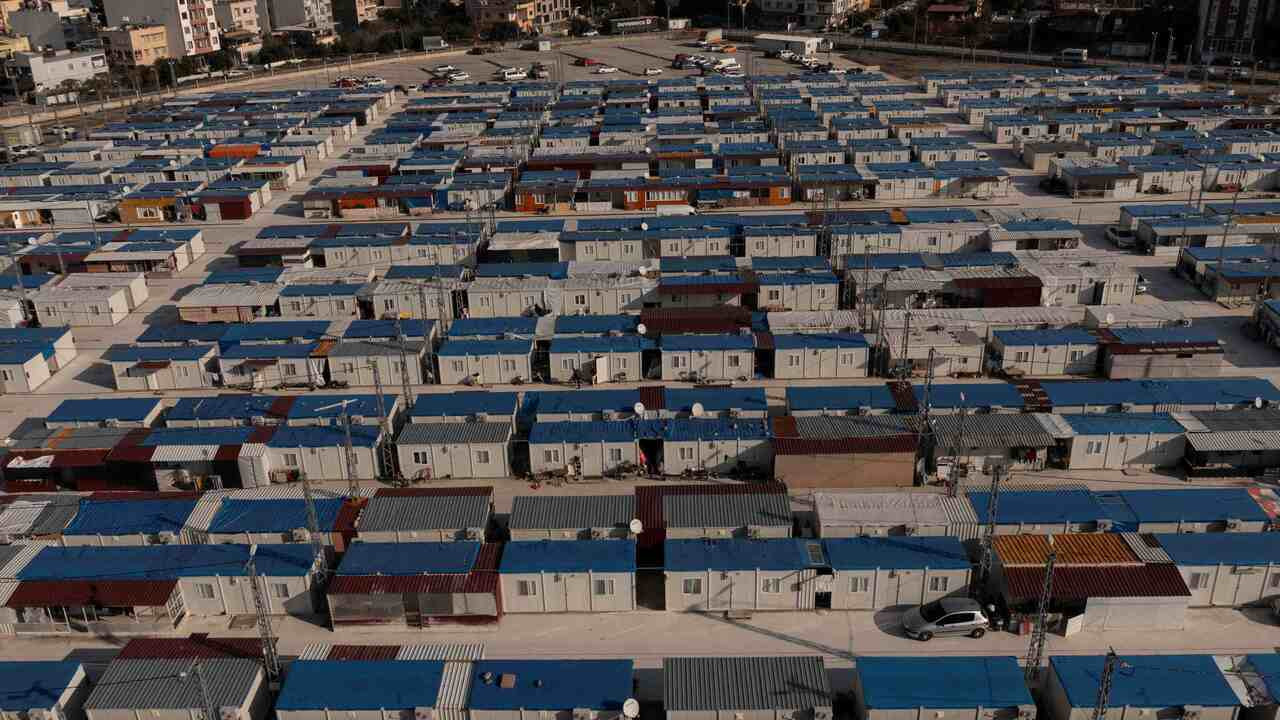Husband searches for wife’s grave 580 days after Turkey’s Feb. 6 quakes
Ozan Laleci, the husband of Büşra Meral Laleci, has been searching for her grave for 580 days since the February 6 earthquakes. His search has been complicated by the recent revelation that Büşra was adopted as a baby, making it difficult to obtain the DNA match needed for exhumation.
Cihan Başakçıoğlu / Gazete Duvar
According to official reports, more than 50,000 people died in the earthquakes centered in Turkey’s southeastern Maraş province on February 6, 2023. Büşra Meral Laleci’s body has been missing for 580 days since she died under the rubble in Hatay province’s Antakya district.
During the DNA identification process, it was discovered that Laleci had been adopted. Laleci’s adoptive family submitted hair strands, which they had cut and kept when she was a child, to the prosecutor's office for DNA testing, but these samples were lost.
Husband Ozan Laleci was rescued from the rubble, and has been trying to locate his wife's grave ever since.

Laleci spoke to Gazete Duvar and described how bureaucratic disorder added to his family’s pain. He said that they had temporarily relocated to Antakya, where his wife worked as a senior industrial engineer. He recounted the day of the earthquake,
“Our building was one of the first to collapse. I was trapped under the rubble for about 12 hours. My wife was alive for the first four hours, and we were together. She passed away after four hours. I believe she died from internal bleeding because she had a very high fever and was delirious. She died in my arms. I stayed under the rubble with her body for another eight hours. Before she died, we had a farewell conversation.”
Under the rubble, Laleci told her husband to move to İzmir, on the country’s western shore. “We had already planned to move there temporarily. Both of us wanted to live in İzmir,” he added.
Husband Laleci was pulled out of the rubble by his father and was taken to hospital where he spent 10 days.
The couple had been together for three years and married for seven months when the earthquake struck. After the disaster, he learned that his wife had been adopted which complicated the DNA matching process. He explained that during the search for her grave, the DNA samples they were able to provide were lost by the prosecutor's office.
“Her adoptive parents had cut some of her hair when she was 14 and kept it in a photo album. Their house also collapsed, but her father found the hair strands in the rubble and handed them over to the prosecutor's office.”
He added, “When I last visited the prosecutor, the prosecutor had been replaced.”
Laleci also mentioned several stories about his wife’s biological parents and explained that they were now searching for her real parents to obtain a DNA sample. “She was left at a mosque in March 1993, with her umbilical cord still attached.”
If the family can find Laleci’s biological parents to get a DNA sample from them, they would be able to compare it with the DNA of unmarked graves in Hatay and surrounding provinces.
“We are searching with hope. Either the second hair sample needs to be found, or her parents must come forward so we can get a sample. Even if they don’t want to reveal themselves, I believe there is a way. I want to find my wife’s grave,” he concluded.
Hatay was the most affected province by the 7.7 and 7.6-magnitude earthquakes that struck southeastern Turkey on Feb. 6, 2023.
At least 23,000 people died, thousands of buildings were destroyed and hundreds of thousands were left homeless in the province.
As with the Lalecis case, some families were unable to locate the bodies or graves of their loved ones. Debris took months to remove in the city center,
(English version by Ayşenaz Toptaş)


 One year after quakes, relatives of those missing in luxury residence collapse cling hopes to a pile of rubbleDomestic
One year after quakes, relatives of those missing in luxury residence collapse cling hopes to a pile of rubbleDomestic Turkey's earthquake survivors grapple with rebuilding lives one year afterDomestic
Turkey's earthquake survivors grapple with rebuilding lives one year afterDomestic Turkish court releases contractor of collapsed building that killed 97 in Feb. 6 quakesDomestic
Turkish court releases contractor of collapsed building that killed 97 in Feb. 6 quakesDomestic